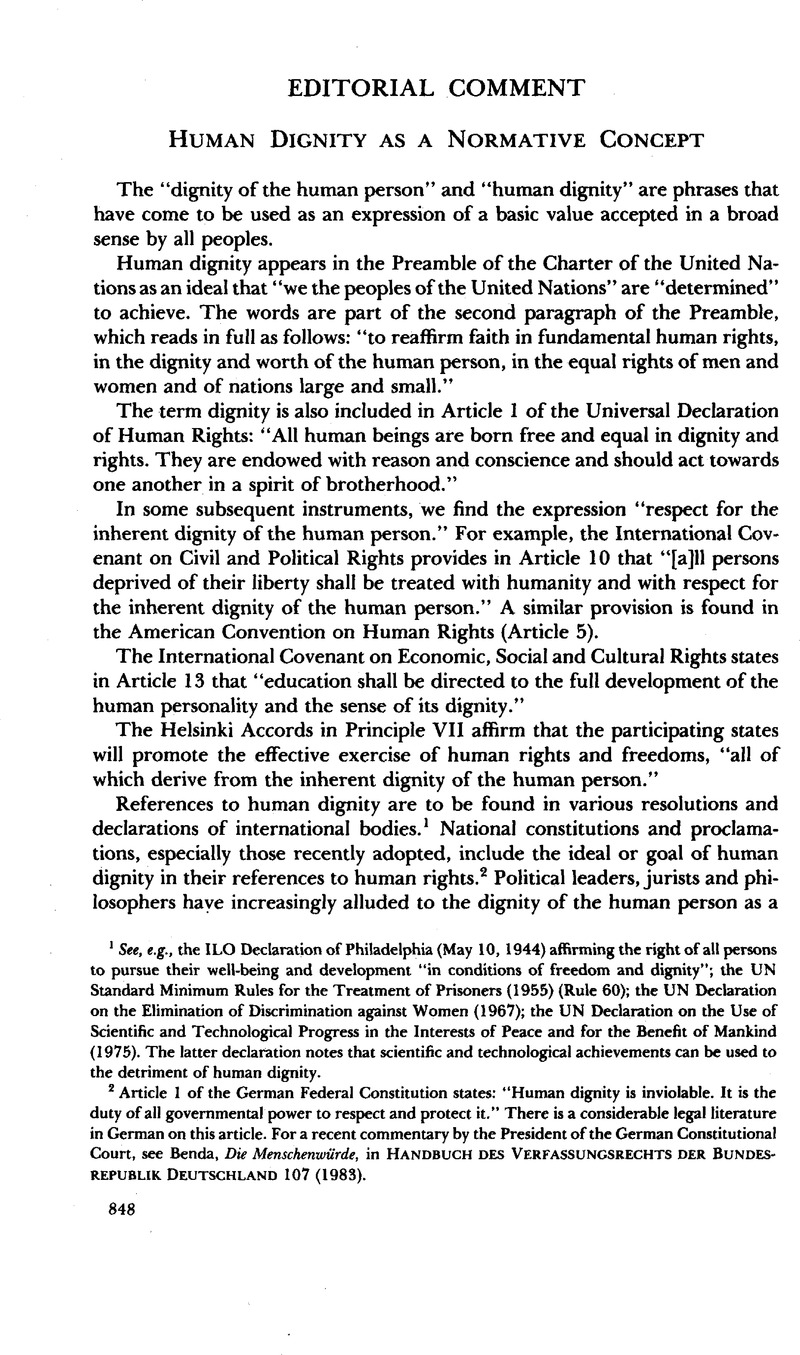Published online by Cambridge University Press: 27 February 2017

1 See, e.g., the ILO Declaration of Philadelphia (May 10, 1944) affirming the right of all persons to pursue their well-being and development “in conditions of freedom and dignity”; the UN Standard Minimum Rules for the Treatment of Prisoners (1955) (Rule 60); the UN Declaration on the Elimination of Discrimination against Women (1967); the UN Declaration on the Use of Scientific and Technological Progress in the Interests of Peace and for the Benefit of Mankind (1975). The latter declaration notes that scientific and technological achievements can be used to the detriment of human dignity.
2 Article 1 of the German Federal Constitution states: “Human dignity is inviolable. It is the duty of all governmental power to respect and protect it.” There is a considerable legal literature in German on this article. For a recent commentary by the President of the German Constitutional Court, see Benda, , Die Menschenwürde, in Handbuch des Verfassungsrechts der Bundesrepublik Deutschland 107 (1983)Google Scholar.
3 Several judicial decisions have applied the concept of dignity without attempting to define the concept in general terms. See, e.g., the decision of the European Court of Human Rights in Lawless v. Ireland (Merits), 1 EHRR 15, 39 (Judgment of July 1, 1961) (individual op. Maridakis, J.). The courts of West Germany have also handed down several interesting decisions applying the constitutional provision on human dignity. See Benda, supra note 2.
4 Benda considers that the German constitutional provision on human dignity imposes a constitutional duty on the state to protect individuals against material want (materieller Not). See Benda, supra note 2, at 113, 115. The right to public assistance has been linked to Article 1 of the Constitution by the Supreme Administrative Court, No. 55, 1 BVerwGE 159 (1954). There is an old judgment of the Constitutional Court stating that Article 1 standing alone did not impose a duty of protection against material want (No. 22, 1 BVerfGE 97, 104 (1951)), but this opinion does not represent the views held generally today. I am indebted to Professor Stefan Riesenfeld for information on the German constitutional law concerning this point.